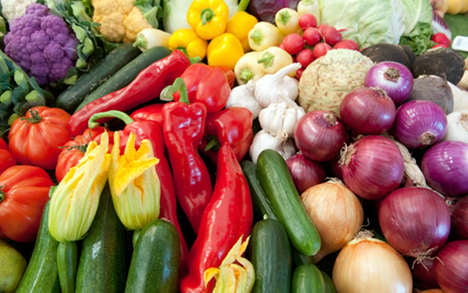Germans bought 30 percent more organic food last year than they had six years previously. They spent €7 billion a year on it, or €73.6 per person. While this is still behind Denmark and Switzerland, it is way above the EU average of €28 per year, per person.
On the surface, this leap should look rosy for Germany. But as Der Spiegel magazine reported on Tuesday, native farmers are not profiting as much of that organic food is being imported. And these are not exotic fruit varieties – it’s standard fare such as potatoes and carrots which could easily be grown in Germany.
A study by the Friedrich Wilhelm University in Bonn found that 28 percent of organic potatoes on sale in Germany came from abroad, largely Austria, Israel and Egypt.
Forty-eight percent of organic carrots eaten in Germany are grown in the Netherlands, Israel or Italy and 25 percent of organic eggs come from the Netherlands or Italy.
The area of German land certified organic doubled between 2000 and 2012, but this is not enough to satisfy the appetite for organic produce – and other countries have been happy to fill the gap.
“Many countries have recognized the potential in particularly the German market and invested in the conversion to organic arable land,” the study authors said, Der Spiegel said.
For example, Poland and a number of Baltic states have since 2004 increased organic farm land by between 300 and 500 percent. During the same period the growth in German organic land was just 29 percent.
The study’s authors pointed to fact that non-organic food prices were rising as one reason that the German conversion to organic farming was lagging. These non-organic food prices were politically influenced, they said.
European financing for organic farming has also been cut by up to 20 percent, although it is needed to help farmers make the change. The German government should make up the short-fall, they said.
The Local/jcw



 Please whitelist us to continue reading.
Please whitelist us to continue reading.
Member comments